Up to Sparti (Σπάρτη)
Dave the motorhome has heard a rumour that his free-camping ways aren’t looked upon kindly up here among the ancient ruins, olives and snowy mountains at Sparti. He’s taken the advice of Adam and Sophie, nipping into a leafy, packed-earth car park (N37.07283 E22.41479). We’re alongside the quiet road from Sparti to Mistras after a monster drive up from the coast. So far, so good, it’s 8pm and no-one’s paid us a blind bit of notice.
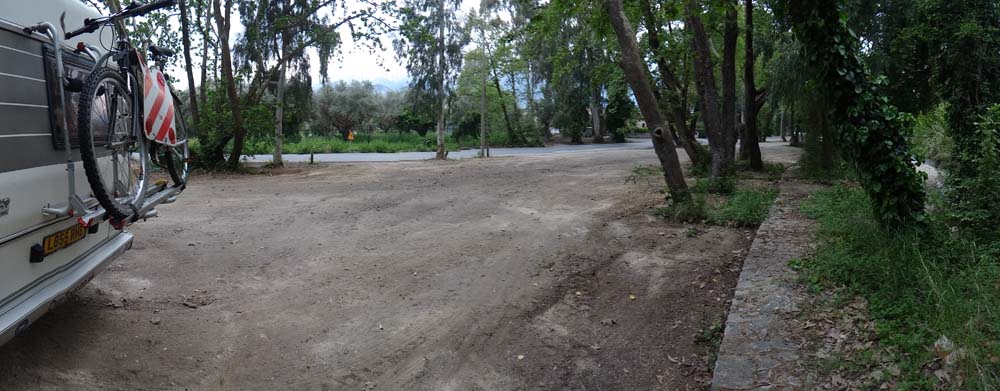
Camping Dave, a few km from Mystras. Since we arrived a 1979 Dutch van we met at Lidl has also arrived, after we passed each other a few times on the hill up here.
Yesterday an unusual sight drove past the back of Dave, a Greek-registered motorhome, the first we’ve seen, anywhere. Adorned with a web address, we checked it out. The Camper Club of Greece is, it turned out, a motorhome hire company. If you fancy a motorhome tour down here without the inconvenience of buying/transporting your own vehicle, it looks like a great solution (if a bit pricey – €120 to €230 per day). The hired van drove past us and out onto the jetty into the sea, which looked a better spot for a quiet evening so we decamped and parked up in front of them.
Both keen to work out if they were Greek, I nipped out with Charlie for a walk, waving a ‘hello’ in the direction of the chap sat on a small seat he’d placed to look out to sea. Nothing wrong with that? Arrmmm, well, it depends on quite how you wave, would you believe? If you hold up your hand, fingers spread out, like I naturally do, then you’ve basically gone and told your native friend to go and do one. I forgot this, receiving a luke warm response at best which I confused with uncongenial behaviour until Ju later pointed out my error. While we’re on the subject of vulgarity, we’re hearing the word malakas (μαλάκας) a lot. Blokes sat drinking an iced coffee shout it to their mate riding past on a blaring loud moped. In fact, blokes shout it to mates all the time. It means, literally ‘w***er’, but has a far more subtle meaning here (there’s an entire Wikipedia article about it!), not one we can work out and our guide book advises us to steer well clear of it…
Sat on this wedge of land poking out into the Messinian Gulf, the clouds cleared, Dave’s heating was quickly turned off and the sun cast our shadow anew along the jetty. Looking over the water, the outline of the Taygetos mountains redrew itself, in an inkless blue-grey, it looked like a horizontal jagged crack in the sky. These are the high places of the Mani, the central southern peninsula of the Peloponnese, and the place is the stuff of legend. We’d learned that the amiable genius Stephen Fry was holidaying just opposite the water to us yesterday, visiting the house of a hitherto unheard of (to us) British travel writer, Sir Patrick Leigh Fermor. Pause: a man has just walked past with two massively milk-laden goats in tow. He’s re-appeared goatless from the woods, now could be my chance to acquire a long-longed for goat? Anyway, sorry, I’m back in the room. Sir Patrick, it transpires, wrote an entire book on the Mani in 1958, which I’ve just started to read. It’s a fierce-some thing, this book, the man clearly had an incredible grasp of Greece, more than even some Greeks I would imagine, and demonstrates the knowledge with a vocabulary which requires me to look up half the words in it using the Kindle’s built-in dictionary. He travels in proximity to the land, on foot and with local guides, getting up close and personal with folks – a brave and insightful way to tread the Earth. Cut to the chase: the Mani excitement is building, it sounds a dark and fascinating place if we can even experience a tenth of Sir Patrick’s adventure.
This morning the hired van had moved, swapping places with us and parking up early on the broken quay close to the fish mongers in the town. Boats had crobber-crobbered their way out in the gulf and back all night, their small diesel engines the only break in the silence. Maybe they didn’t fancy being told to do one by the upstart Brits, or were after some of the World’s freshest catch? I pulled on my wetsuit and swam in the ocean, the half-dead floor more than made up for by floating upright to peer at the mountains reflected in the still sea.
Over breakfast we pulled the map out, pointing at it with one hand while spooning in cereal with the other. The next free-camping spot is Velika Beach, and I’d a vague recollection of a shipwreck there. Further on around the coast our map has ‘shipwreck’ scrawled on it on the other side of the Mani, my mistake. We nipped into the beach anyway, the bamboo whacking Dave’s sides on the narrow 2km track, getting lucky and meeting oncoming pick-ups and cars at good passing places. One olive grower along the way had doubled-up his crop we noticed, the thick green tops of potatoes below the oil-producing fruit. The beach stretched the full width of the gulf, a fabulous if lonely spot. After Charlie had donned his red shorts and rescued a few stones from the sea we pulled the map out again.
The Mani is close, just the other side of the modern sprawl of Kalamata, the first city freed from the Ottomans (the Turks) by the Greeks at the start of their War of Independence only 180-odd years back, the beginning of the end for a 300 year occupation. No-one seems interested in Kalamata, or the nearer town of Messini, but we were. They’ve both got Lidl supermarkets! Sir Patrick’s book makes it pretty clear the Mani is not a place of Lidl supermarkets, so we nipped into the one at Messini and stocked up. Lidl’s look much the same everywhere, but something always sets each one apart. For this one it was the beggars, not unusually stood around the trolley return after people’s €1 coins, but unusual to us in the fact they were children. Maybe 6 or 7 years old, clearly accepted by the shop as the security guard in stab-proof vest chatted with them as we arrived. Just before leaving some crossed the street in front of us with an adult, clutching Lidl plastic bags of groceries. They left a young boy stood toying with a stack of coins – maybe €10’s worth. As we drove past them an official road sign pointed off to one side to the Roma Camp. Oh, not just the beggars, but the beer too. A tall Orthodox priest, all bushy beard and unkempt black robe, walked past us in the shop with three scruffy nipper in tow. His trolley was laden with three cases of 33cl Graffenwalder Pils, Lidl’s stock German lager, available everywhere. It’s usually much cheaper in larger cans or bottles, but on special offer it was only 88c a litre, about 38p a pint, half the price of Coca Cola. If it’s good enough for the Orthodox Church, Dave’s now got a case slotted in incongruously alongside my driver’s seat.
Back to the map, there are ruins in them thar hills! Oddly, not at Sparta though. Although the legendary Spartans lived up here, with their social code of warriors and slaves and epic battles with Athens, they left next to nowt behind. It seems they bent all their efforts on turning themselves into killing machines, no-one bothered to build much. Anything they did build was either pulled down and use for defensive walls when their empire started to collapse, or was re-used by the subsequent Byzantines to help build Mystras, the ruins of which are described by Rough Guide Man as ‘a glorious, airy place’ and ‘the most exciting and dramatic site that the Peloponnese can offer’. Yep, we’ll have some of that. Only problem is, it’s the wrong way. There’s no obvious circular route to take in the Mani coast and to continue east, so we decided to drive up here and back again, maybe about 70 or 80km, but a road not to be sniffed at.
Heading through Kalamata, it looked nothing much from the outskirts. Well-used mopeds buzzed about at traffic lights, some comically laden with bags of shopping hanging from the handles. Legally folks should wear helmets here but none do. Some choose to carry the helmet in their hand, presumably in some sort of defence if the highly unexpected happens and the generally unseen police stop them, and ironically making it harder to ride and them rendering themselves more likely to crash, helmetless. You have to smile.
As the crossed out Kalamata sign drifted past, the road went all mountain-like on us. Narrowing down, twisting around and bumping us about, there was hardly a stretch of level, straight tarmac. Switchbacks fell away down precipitous drops as the road searched out an unlikely path over the crumpled countryside. Overhanging cliffs suddenly appeared without warning, thankfully we easily passed beneath them. For anyone with a hint of acrophobia, this ain’t the path for you, or come blind-folded, or drunk. Having said all that, the French chap we’d camped near at Koroni passed us going the other way, and he had a HUGE van, a luxury beast with hydraulic levelling legs, and he’d clearly made it OK. Although he was an airline pilot thinking about it. We had a laugh wondering if he can’t help himself give a commentary as he drives: ‘Ladies and Gentlemen, this is your captain speaking, we are cruising at an altitude of no feet, with an airspeed of 43 miles an hour. The weather in our destination is a balmy 23 degrees, and we are scheduled to arrive in <checks sat nav>, 25 minutes’.
Pulling in from time to time, the clouds had fluffed up the sky again and we stared out over the deep valley, some burned clear of trees. In one dramatic spot the shouts of climbers echoed between the caved cliffs. Looking up I’d a bout of acrophobia myself as a chap hung from a sickening overhang, resting and searching for his next set of holds. All through the journey Charlie gnawed on a tooth-cleaning bone-shaped treat from Lidl, popping his head alongside me as I drove, saliva dripping onto my left arm as he refused to drop his goody, nice.
Finally, just as my trademark back-stabbing pain threatened to make an appearance, the road levelled out and we rolled into Sparti. A fuel station advertising diesel at €1.31 a litre (it’s usually about €1.40) saw Dave’s wheels near-squeal their way into the forecourt. As the filler-upper man topped us up, using the hose from the opposite side of the pump, a chap on a moped shouted out the amounts so he could charge us a round amount. Laughing at the way he went all auctioneer-like at the end few cents, he asked where we were from, going on to say he was American. In what sounded like Greek being spoken with a US accent he lamented at how he’d moved from Washington ten years ago, had built a house here and now regretted it. ‘The dollar was good, the drachma was good, now the euro, no good’. He’d been a painter and had fallen ill within a couple of years of arriving. ‘I have kids in the States, I just want to go and visit there again’. He then oddly started to fend off filler-upper man, clearly well known to each other, calling him a malakas.
Cheers, Jay

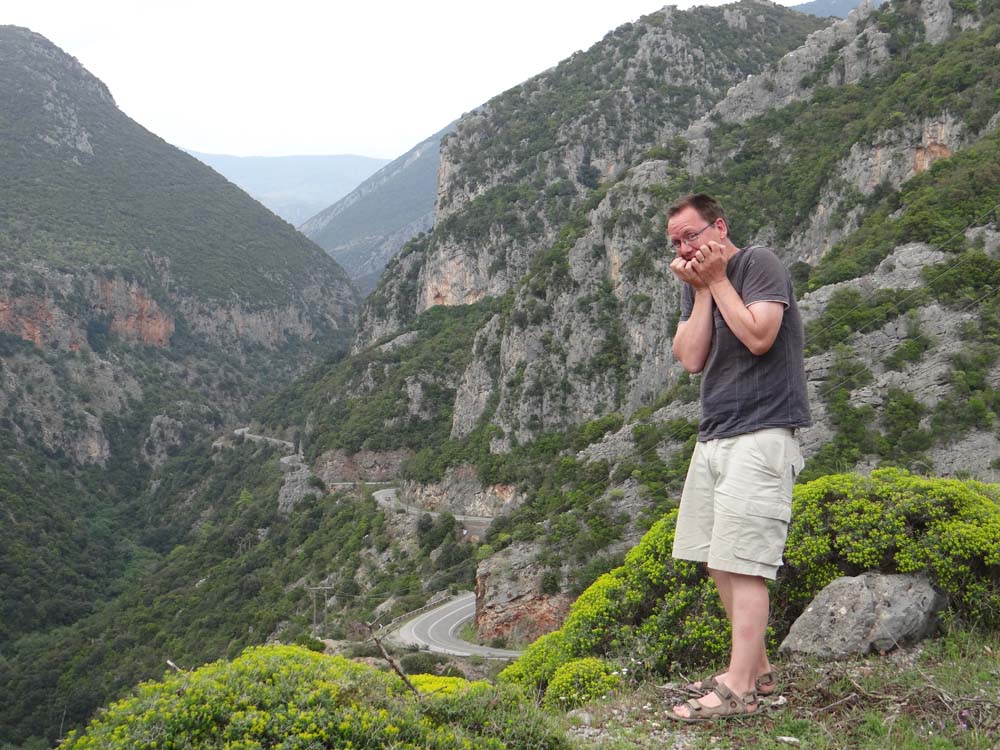
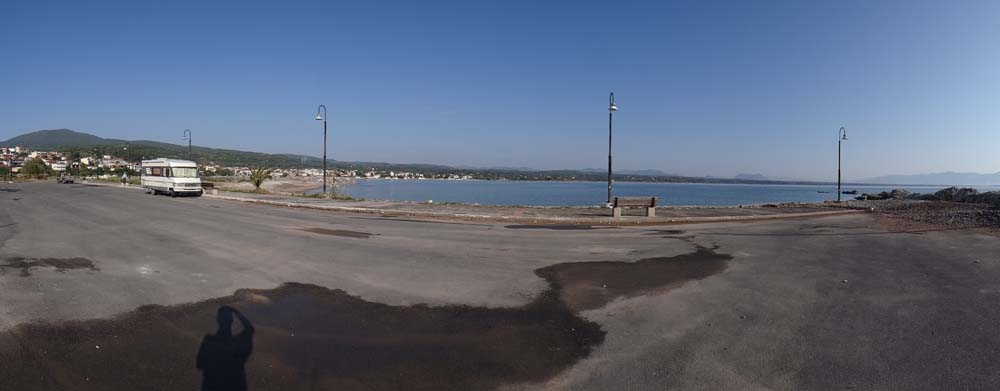

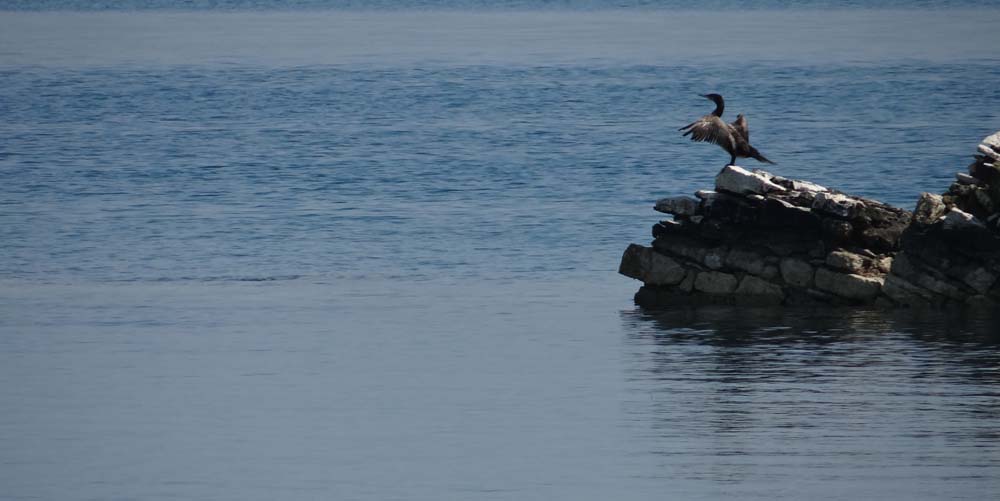

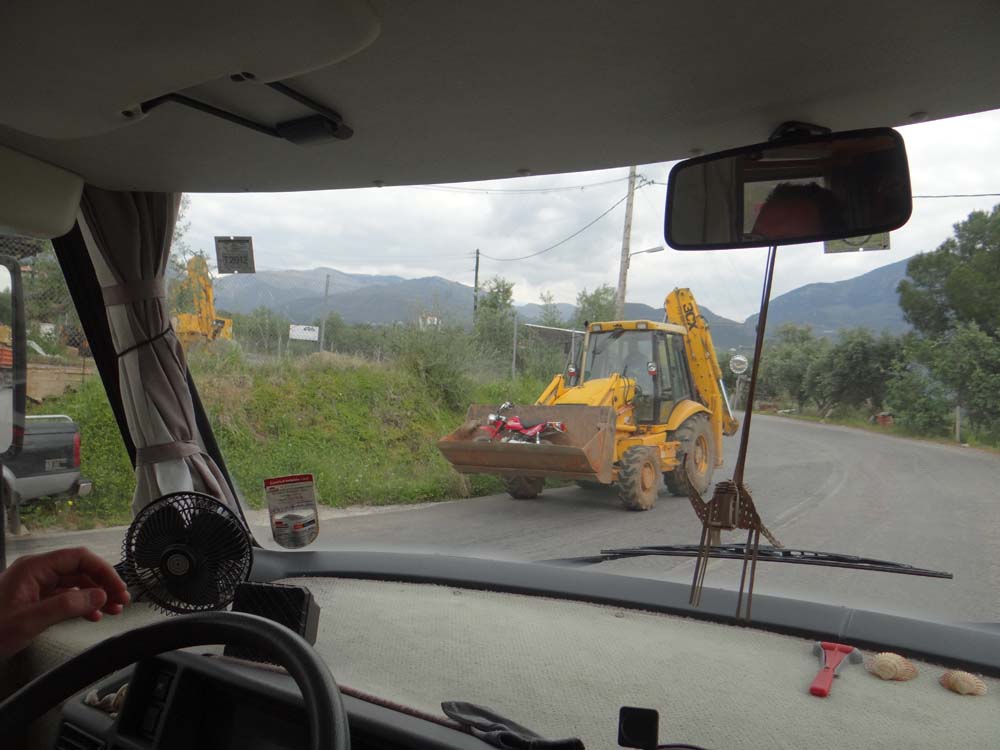
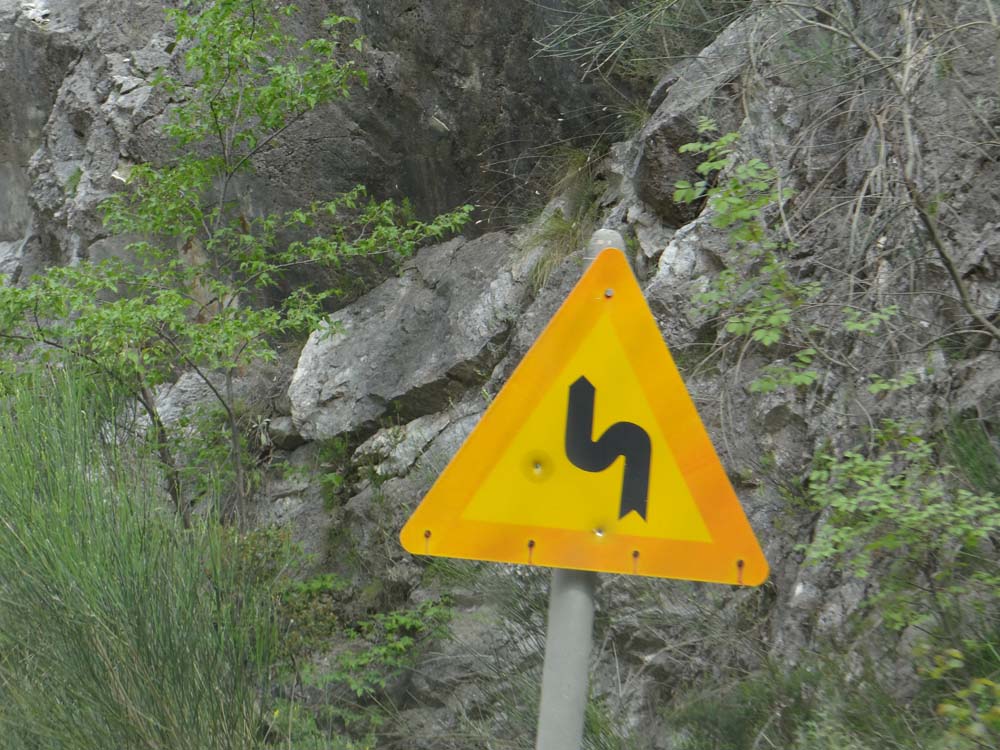
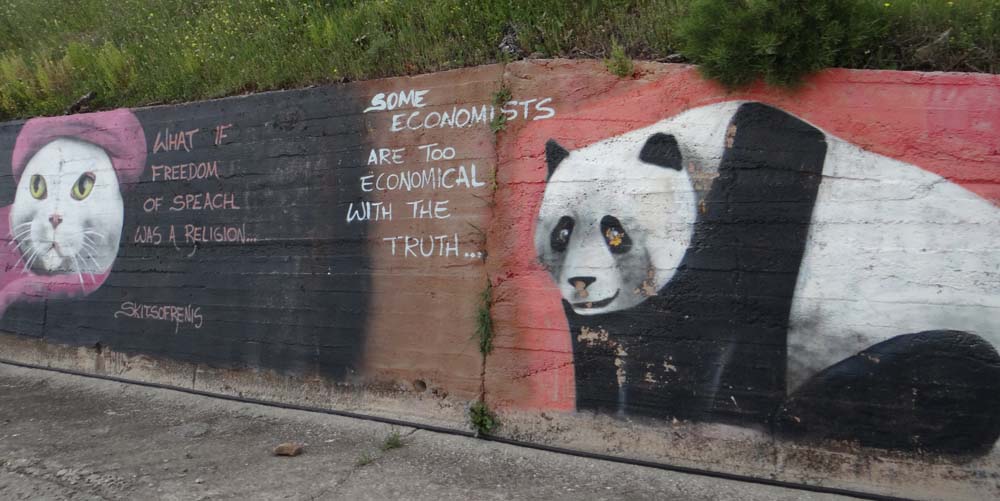
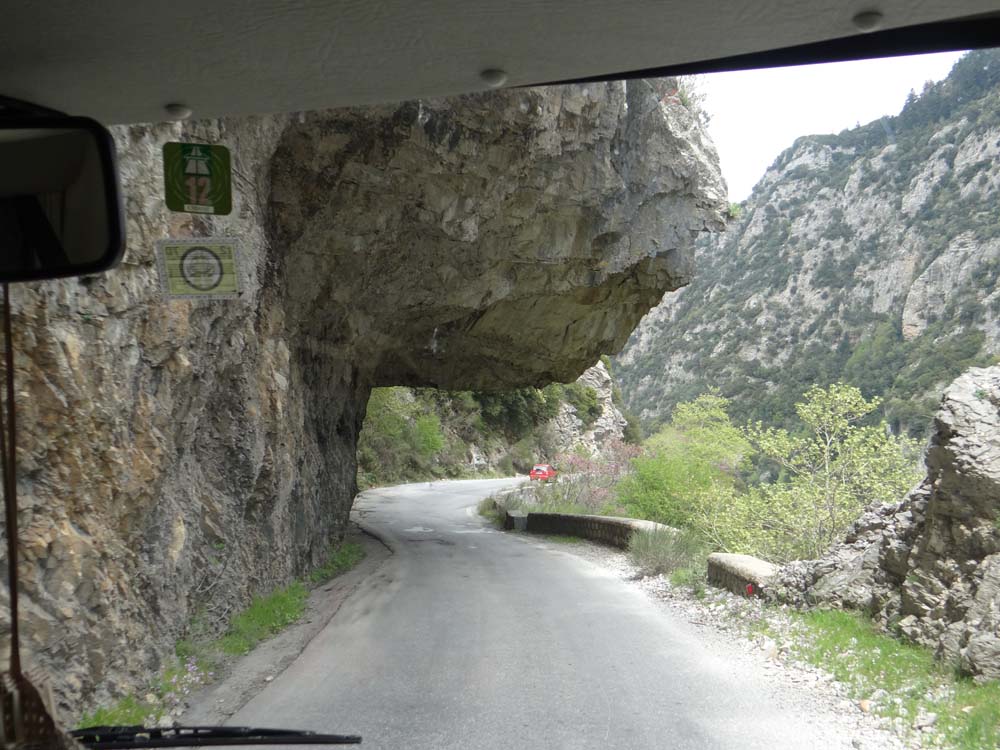
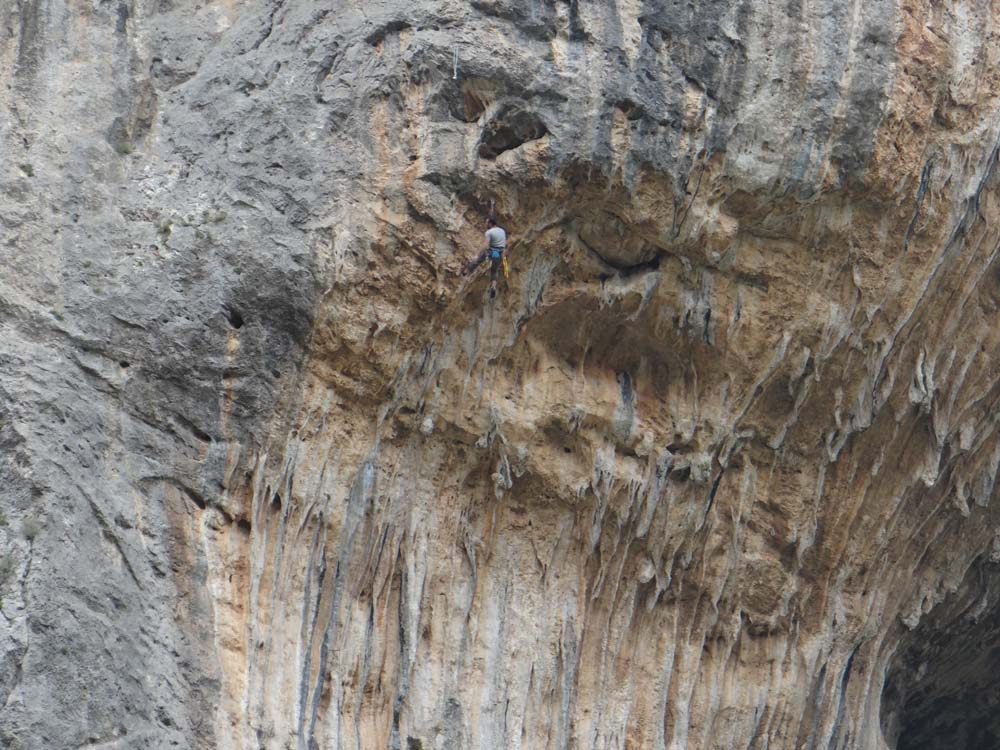
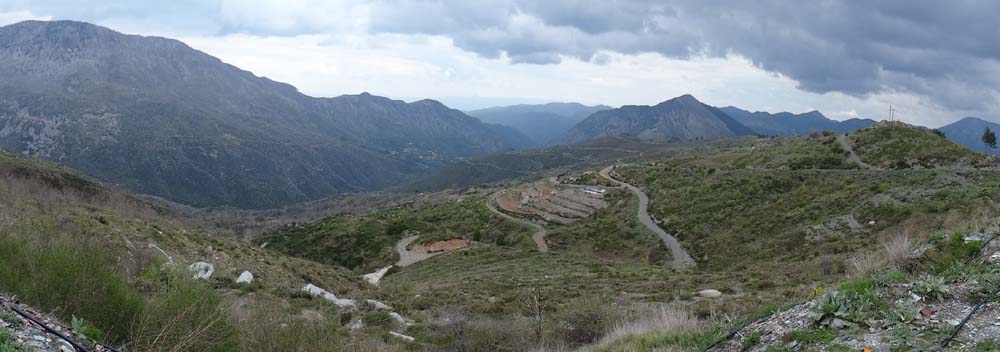
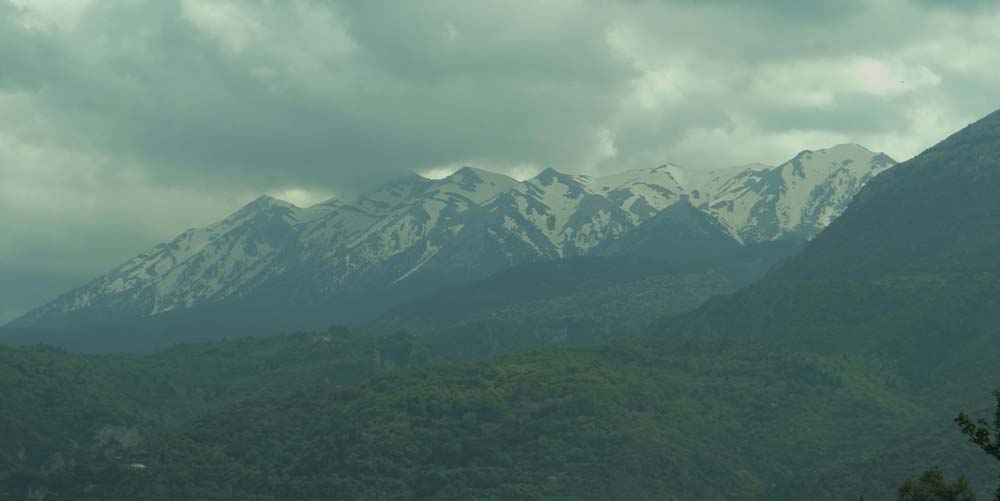
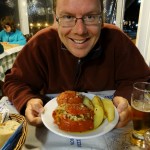
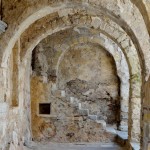
I wonder why the graffiti is in english?
Quite a bit of it was in Greek, but we didn’t know what any of that said!